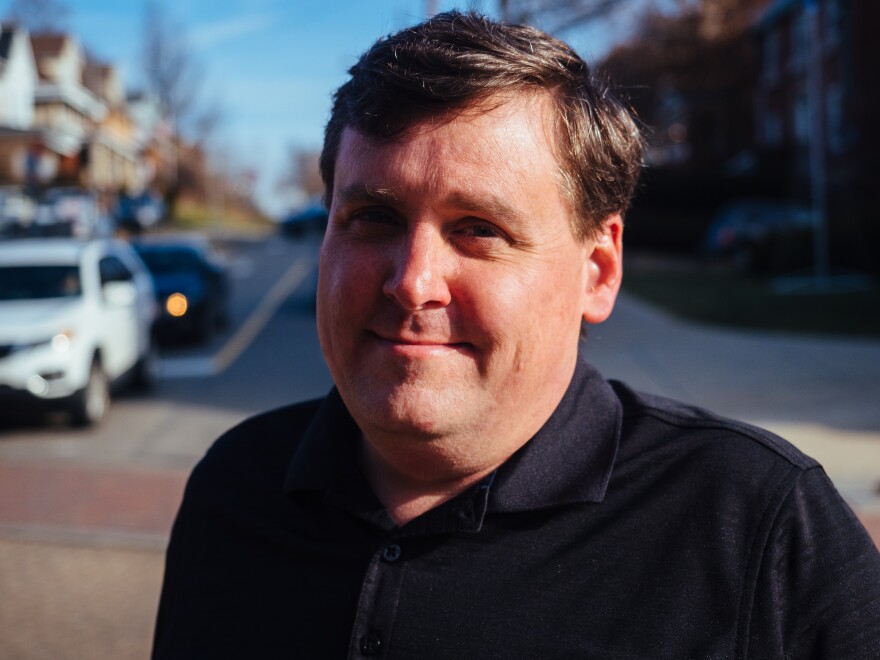Election Day is in just two weeks. But concerns about slow mail delivery, voter suppression, and baseless claims of fraud have voters on both sides wondering if the results can be trusted.
'If I can go to class, I can vote'

This is the first presidential election Savannah Henry can vote in. She’s a junior at the University of Pittsburgh and tried to vote absentee in the 2018 midterms. But she never got her ballot, so she’s voting in person on campus this fall.
“If they’re sending me to campus and I’m back enrolled in school, I'm expected to go to class and do all these different things, I can go vote,” she said. “I’m nervous. I really don’t want Trump to win again.”
Henry is a progressive Democrat from Erie. She’s troubled by Trump’s false claims of mail-in voting fraud, and by his acknowledgement that low Black voter turnout helped him win in 2016.
“I was feeling skeptical because the President attacked the [postal service] and made it clear that it was something he was going to tinker with,” she said. “This country is no stranger to making it hard for certain populations to vote – and I'm a college student, I'm Black. If they see that on paper, it's easier for them to throw it out.”
To be clear, things like race and age are not listed on ballots, and Henry still thinks voting by mail is a good system.
Many Pennsylvanians seem to agree. More than 2.7 million have applied to vote by mail so far. Nearly two-thirds of them are Democrats.
Voting in person, on the lookout for fraud

That imbalance worries Republican Ed Cwiklinski.
“While I don't think people are going to cast votes illegitimately, I think the system was set up so that more Democrats could vote,” Cwiklinski said. “I think there’s a lot at stake here, and I’d like to see Trump get re-elected. At the same time … it’s not looking so good for Trump in most of the polls.”
Cwiklinski is in his forties, works in information security and lives in Bethel Park. He plans to vote in person on November 3 because while he trusts the mail-in system in general, he believes there are too many kinks to work out.
Cwiklinski said he’s watching closely for suspicious activity – like if someone finds tons of ballots dumped in sewer systems. But until there’s an actual sign of fraud, he said he has to trust the results. Cwiklinski hopes Trump will do that too, though he worries the President will cry foul before every vote is counted.
“Yeah it concerns me, because Trump should just not say anything,” he said. “But I'm sure he will.”
Democrats are worried that Trump has not committed to a peaceful transfer of power if he loses. Ed says those concerns are groundless.
“Trump's in to win anything he does,” Cwiklinski said. “He's not going to be asked, ‘Will you commit to a peaceful transfer of power?’ Because if he says ‘Yes,’ reporters will say, ‘See Trump knows he's going to lose.’ Or they'll take whatever he says and use it against him.”

Republican Mary Henze agrees that it’s absurd to worry about Trump refusing to respect election results.
“I think you’re giving a scenario that’s not going to happen,” she said. “He has more class than that, even though we don't see it all the time. Trump's going to win, he's going to win, I'm sure of that.”
Henze’s in her fifties and lives in Jefferson Hills. She believes the mail-in voting system is rife with fraud, and she doesn’t like the idea that the results will change as mail-in ballots are counted. So, although she missed voting in the primary because she was getting chemo, she plans to vote in person this fall despite the health risks amid the coronavirus pandemic.
“I will trust the in-person voting,” she said. “I don't know that I can honestly say I would trust the mail-in voting.”
Seeking 'overwhelming victory' for Biden
“It’s not voter fraud, it’s voter suppression – that’s the real issue in this election,” said Democrat Linda Bishop.

Bishop is in her sixties and lives in Mars, Pennsylvania. Since 2016, she’s been very active in grassroots organizing in Western Pennsylvania. She worries about long lines at mostly Black polling places across the country, and voter ID laws that can discourage many people of color from voting.
“[Republicans] are trying to do everything they can to make voting more difficult for Democrats. Especially in urban areas where there are large concentrations of African-American voters and young people,” she said.
Bishop plans to vote by mail this year. If the results are close, Linda worries Republicans will sow distrust in the outcome.
“It's so important for Democrats to get out the vote for Biden,” she said. “Because there needs to be an absolutely overwhelming victory for Biden that his supporters will have no choice but to accept.”
But progressive voter Savannah Henry believes Trump’s strategy of choosing what he wants to believe has been years in the making.
“It's what he started his campaign on – it's literally fake news and them not believing anything that’s in the media, or them not believing in climate change, or them not believing that the pandemic is something to be worried about,” she said. “It’s what he runs on. Even if he's clearly losing he'll say that the results are wrong.”
Meanwhile Republicans Ed Cwiklinski and Mary Henze believe Democrats won’t accept the results if Trump wins. And in a state that was decided by less than 50,000 votes four years ago, we may not know the outcome until days after the election.
WESA's Split Ticket series has followed four Western Pennsylvania voters over the course of the last year, to understand the issues that may shape their decisions when they vote this fall. You can find the entire series here.




